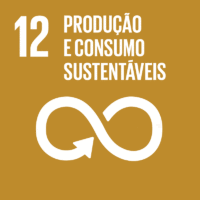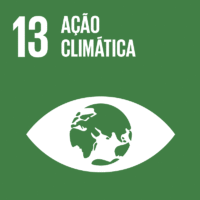Ciência_Iscte
Publicações
Descrição Detalhada da Publicação
A Critical Assessment of Organic Agriculture in Portugal - A reflection on the agro-food system transition
Título Documento
DINAMIA-CET-Iscte Working Paper n.º 2021/05
Ano (publicação definitiva)
2021
Língua
Inglês
País
Portugal
Mais Informação
Web of Science®
Esta publicação não está indexada na Web of Science®
Scopus
Esta publicação não está indexada na Scopus
Google Scholar
Esta publicação não está indexada no Overton
Abstract/Resumo
Over the last few decades, the organic agriculture sector has experienced sustained growth. Globally, as well as in the European Union and Portugal, organic production accounts for just under 10% of total Utilised Agricultural Area (UAA) (FiBL, 2019; Eurostat, 2019; DGADR, 2019; INE, 2019; GPP, 2019). This growth has been seen in terms of production, number of producers, amount of retail sales, imports and exports.
This article attempts to build on the multi-level perspective (MLP) of the socio-technical (ST) transitions theory by employing a whole systems analysis (Geels, 2018) of organic agriculture in Portugal, which defends an integrated vision of the systems, where multiple interactions occur within and among the niche, the regime and the landscape levels. This approach has been employed in order to develop a critical analysis of the current state of the Portuguese organic agriculture sector, stressing the multiplicity of elements that are contributing to the agro-food system´s transformation into a more sustainable one. In fact, the agro-food system is related with climate change but also has connections with other domains such as public health, water management, land use and biodiversity. Therefore, it is affected by shifts in these areas.
This analysis considers developments in increasing domestic organic production, number of producers, amount of retail sales, imports, exports, market innovations, and the sector´s reconfiguration. The organic sector´s increase has been attributed to European regulation, institutionalization, standardization, farmer certification, external (government) subsidy support programs, incremental market improvements (visibility and product access), the emergence of new retailers, the rise of supporting consumers and a shift away from conventional agriculture (Truninger, 2010; DGADR, 2019; Pe´er et al, 2019). However, together with positive incentives, this sector also faces numerous barriers that are hindering a faster transformation.
Difficulties for the sector to date have included: product placement; a disconnect between production, distribution and marketing systems; high transport costs; competition from imports; European subsidies focused on extensive crops (pastures, olive groves, and arable crops), entailing a substantial growth in the area of pasture to the detriment of other crops; the fact that the products that are in demand (fresh vegetables and fruit) are being neglected by Portuguese producers; expensive certification procedures; lack of adequate support and market expertise for national producers; the hybrid configuration of the sector; and price. Organic agriculture as a niche-innovation is still not greatly contributing to overall agricultural production. The low supply of organic products, despite its ever-increasing demand, suggests that a transition to increased organic production requires a deeper and faster food system reconfiguration, where an array of distinct policies are mobilized and a diversity of actions take place at different levels (Geels, 2018; Pe´er et al, 2019).
This paper will attempt to contribute an overall critical assessment of the organic sector´s features and evolution and will identify some of the main obstacles to be overcome, in order to boost the sustainability transition of the agro-food system in Portugal.
Agradecimentos/Acknowledgements
--
Palavras-chave
organic agriculture,sustainability transitions,systems reconfiguration,agro-food system.
Classificação Fields of Science and Technology
- Economia e Gestão - Ciências Sociais
- Geografia Económica e Social - Ciências Sociais
Registos de financiamentos
| Referência de financiamento | Entidade Financiadora |
|---|---|
| POCI-01-0145-FEDER-016431 | SPLACH Project - FEDER and COMPETE 2020 |
Contribuições para os Objetivos do Desenvolvimento Sustentável das Nações Unidas
Com o objetivo de aumentar a investigação direcionada para o cumprimento dos Objetivos do Desenvolvimento Sustentável para 2030 das Nações Unidas, é disponibilizada no Ciência_Iscte a possibilidade de associação, quando aplicável, dos artigos científicos aos Objetivos do Desenvolvimento Sustentável. Estes são os Objetivos do Desenvolvimento Sustentável identificados pelo(s) autor(es) para esta publicação. Para uma informação detalhada dos Objetivos do Desenvolvimento Sustentável, clique aqui.

 English
English



